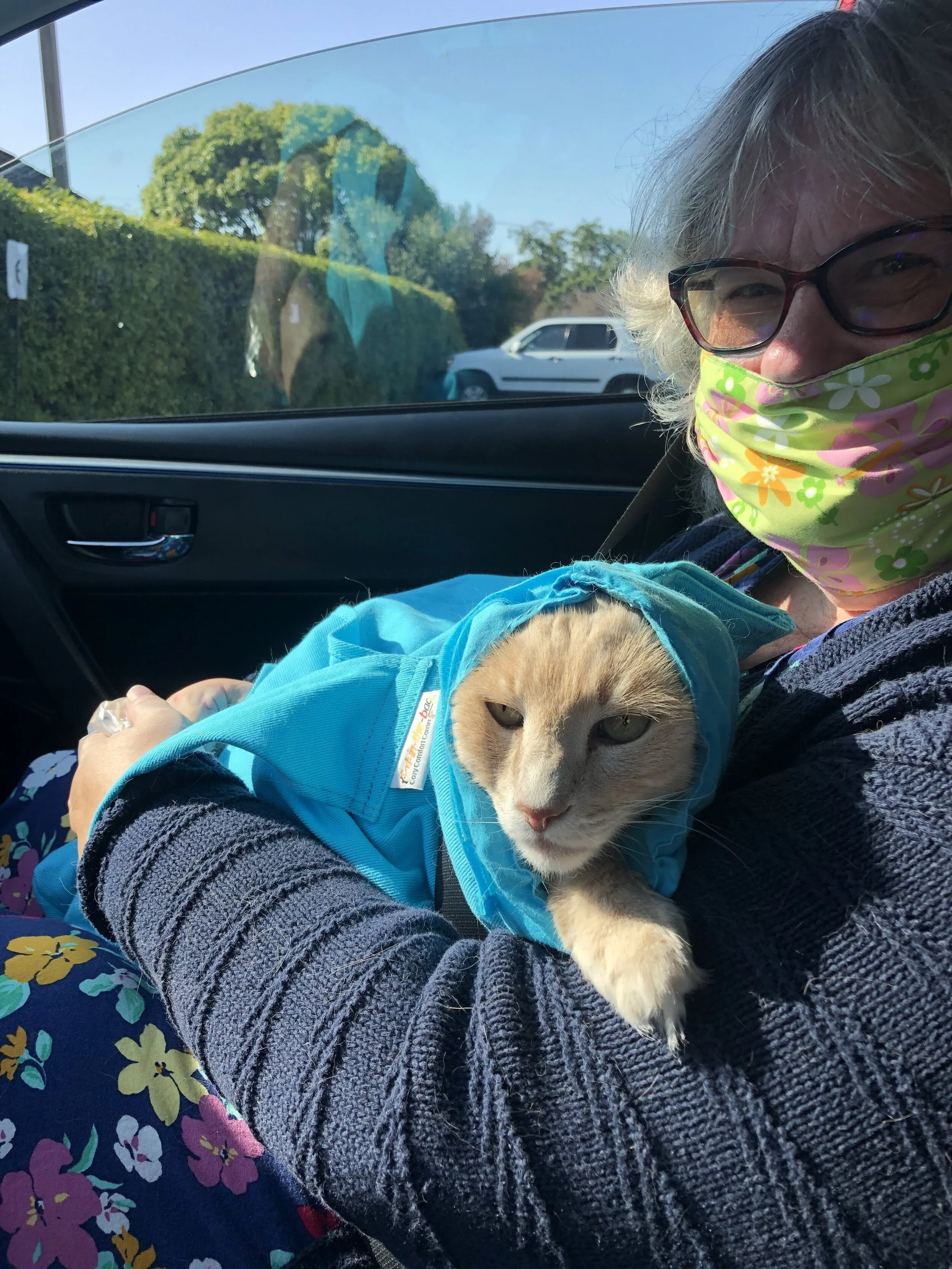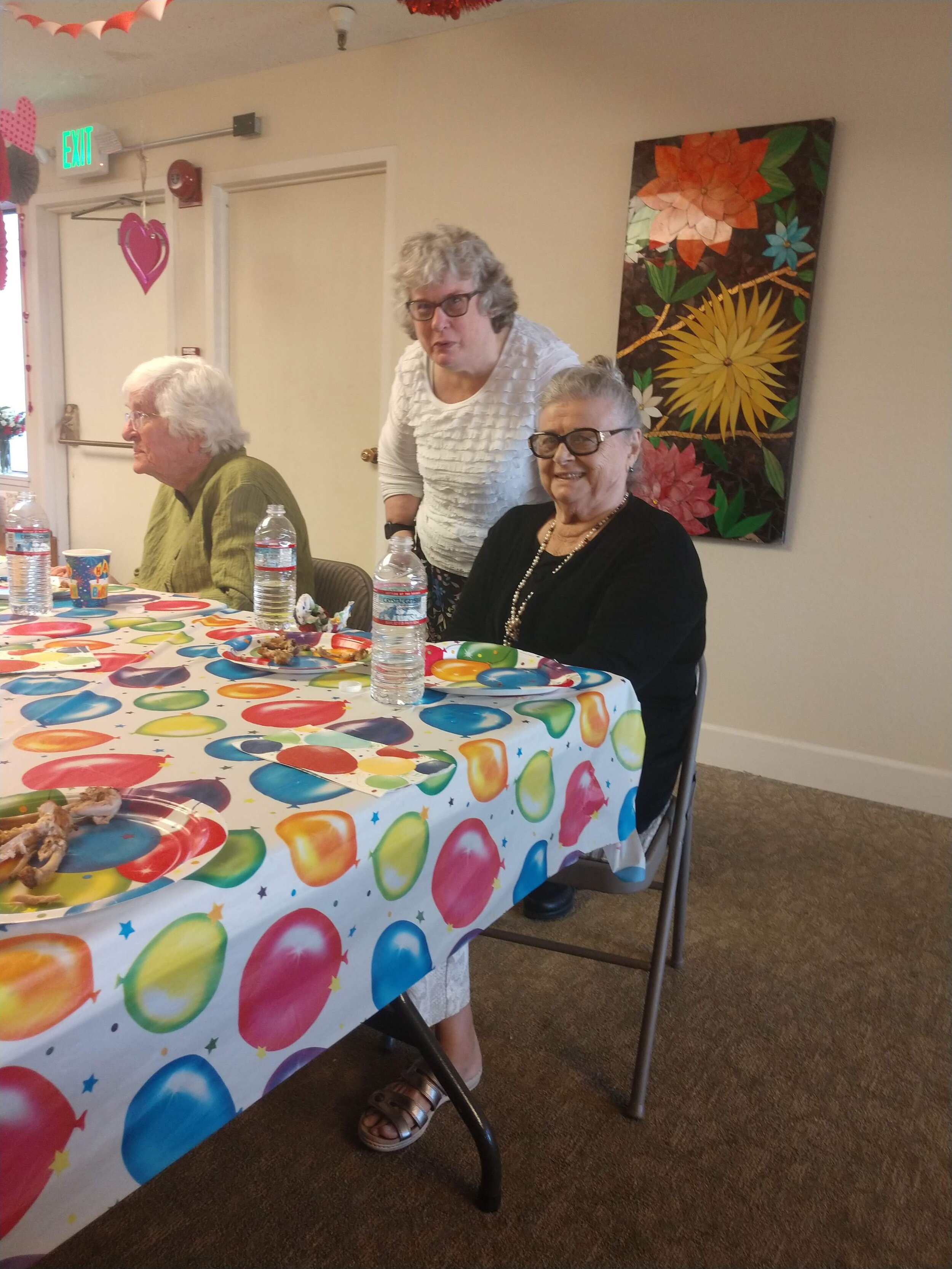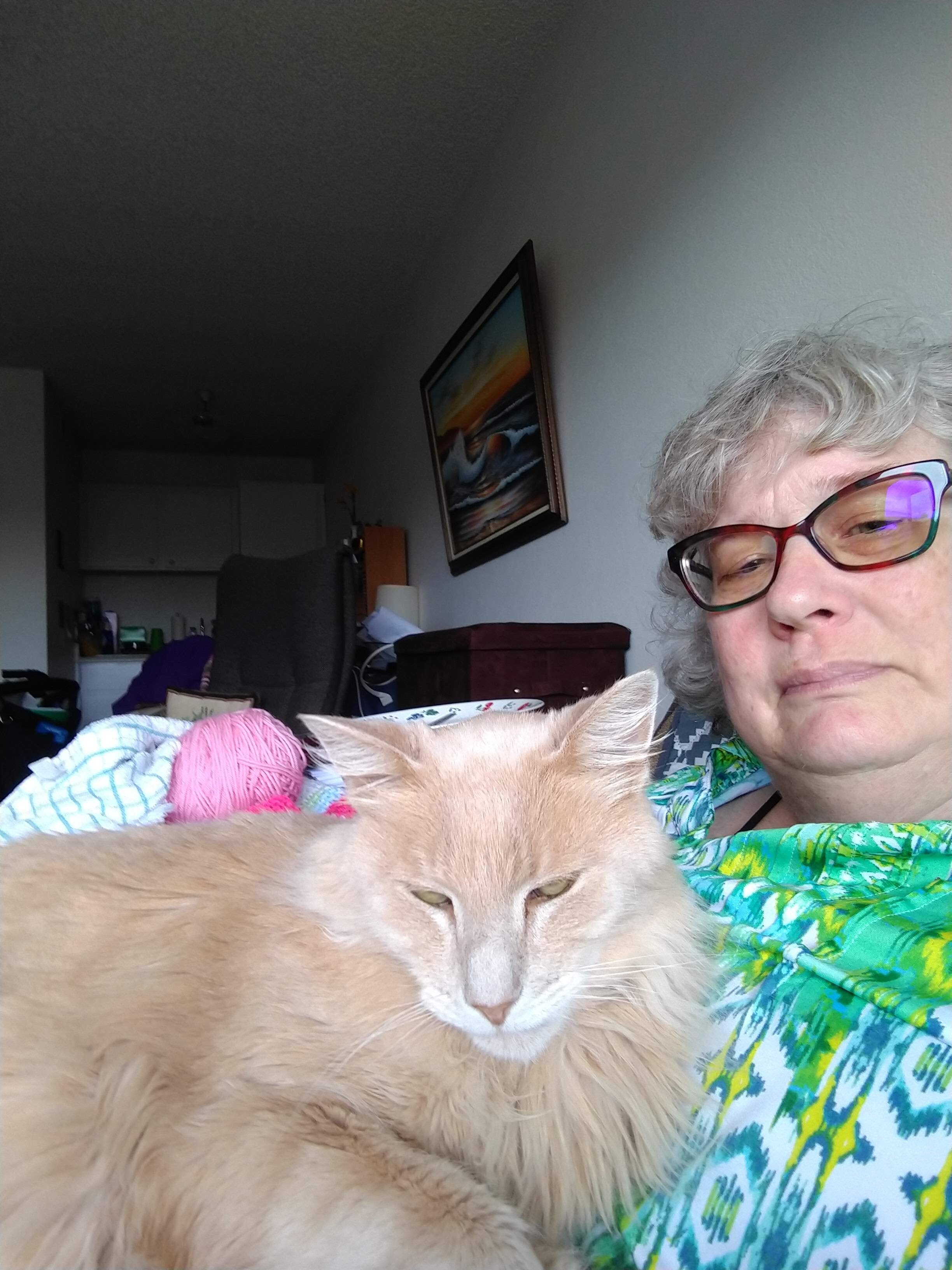Ostomy

An image of the blog author and her cat, Dr. Don sitting in the car.
In 1978 I had blood in my stool, and a year earlier, I had started having pain. Luckily the doctors knew what I had because my Dad had the same condition, Ulcerative Colitis. When my symptoms got worse, my mother called the specialist and described what I was feeling. Instead of going to his office, we went to the hospital. I was a junior in High School, and the hospital was an hour North of my parents’ house. I was in so much pain they tried medication. Despite having the medication, I was getting worse. I did not know that soon, I would have to consent to have an ileostomy, or I would be dead. At the time, I was just so tired.
During my lengthy hospital stay, I had medical tests in the morning, and in the afternoon, my family, teachers, and pastor would come to visit me. After trying other options, my surgeon mentioned a surgery called Ileostomy; I was 19 years old. A nurse trained in wound and ostomy care (ET) or now called a WOCN, came to visit me and explained what would happen. She gave me a clip that would hold the bag sealed. As I thought about whether I would have the surgery, I would pick up the clip she gave me and play with it. After I decided to have the surgery, the ER came and marked me so the doctor would know where to put the stoma. My rectum was removed at the same time. It was my first adult decision. If I refused, the doctor would have overruled me and have the surgery anyway, as I learned later that I was near death.
After surgery, I had complications, and the doctor was trying to put an IV in my neckline. During this process, they collapsed my left lung, and the intern placed a chest tube. The intern raised the bed, and they told me to lie on my right side. Then the nurse said, “squeeze my hand as hard as you can.” I squeezed the nurse’s hand and a bear that my visitors brought me that I had named little JT. I squeezed as hard as I could, and as I did, I could not help but scream. I remember that the bed was up in the air after the chest tube was placed.
I finished high school after five weeks and two days in the hospital. In addition to Ulcerative Colitis, I was born with Cerebral Palsy, a congenital movement disorder. For me, it was an added challenge trying to get used to having to empty my bag as my Cerebral Palsy impacts my ability to use my hands, so I had to learn how to manage my ostomy with one hand.
I had my surgery in March 1979, and my Dad had his surgery after I did. My Dad had Ulcerative Colitis for many years before me. Due to surgical complications during this time, Mom told me that the doctor scared him away from the surgery years before I had my ostomy. But then I had my surgery, and I think Dad saw his youngest daughter with a physical disability who could handle the ostomy with one hand and thought, why can’t he handle it with two hands. So, he finally had surgery and was an active member of ostomy associations. To read more of Al’s story, check out the article “Main Street Banner,” shared with permission from the United Ostomy Association of America.

An image of the blog author at a birthday celebration standing in between two seated woman.
Dad was not taught how to change his bag in the hospital. After he came home, I noticed that he had gone to the bathroom. I called through the door, “how are you doing, Dad?” He replied, “is the spout should be up in the air or down between your legs?” I replied Dad, “you have it upside down!” We started to laugh after that experience. It felt good that I was the expert.
I keep only my close friends aware that I have an ostomy. When I applied to college, they had to know about my ostomy. One time in college, I had a leak from my bag. My friend Adele told me to go to the emergency room. I had a rash that, when I walked, was painful. When I received a package from my supplies at college, I would say Bruce was here. Dad and I can’t use the same equipment, so I have to make sure I always get my own supplies.
One year I attended a conference people with ostomies would attend. I was a part of a panel discussing how each of us handles our ostomies on a daily basis. I shared that It was a challenge living on my own. I had questions like how do I pay for my supplies? I have had to work with my insurance on getting them, and sometimes it can be frustrating, or I start running out needing to find a supplier who will take my insurance. Or other questions like how do I tell my boyfriend, future husband about my ostomy, and what about sex? I have found that I keep a towel underneath me, so the towel catches the stool if my bag breaks.
As part of daily life with an ostomy, Dad has made his own bag covers. For me, I also like seeing the different colors food makes my output. Another friend with an ostomy doesn’t want to see the stool colors, but I think it’s good if I have a medical problem or change because as I get older, my stoma changes, and my diet changes.
Today I am 61 years old. I change my bag three days a week, and today, I have my caregiver assist me with changing my bag. Now, I have been diagnosed with IBSD. So, I am on a FODMAP diet. I can’t eat red meat, gluten, and dairy products. I have also learned to have a stash of emergency supplies that I keep not in my apartment. I still have diarrhea from time to time when I don’t follow my diet, but my diet has helped keep my IBSD symptoms under control.
I have many relatives with ostomies. My cousin and her Dad, my uncle Don, my Dad, and I all have some form of ostomies. I was the first to have an ileostomy in my family and showed everyone else that if I can manage it, they can too!

An image of the blog author and her cat sitting inside.
Beth Stiles is a guest blogger for Girls with Guts. She is 61 years old and has lived with a permanent ileostomy since 1979. Beth lives in California with her cat, Dr. Don. She hopes telling her story will help everyone who is facing this type of surgery. If you want to contact her, she can be reached via email at onehandedeventplanner@gmail.com.
